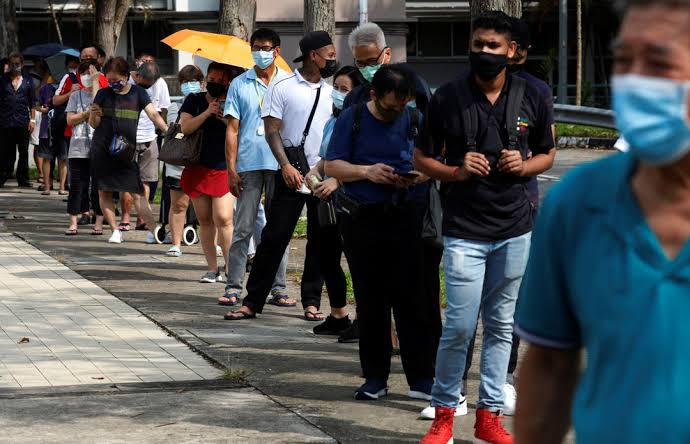Hong Kong’s ageing population time bomb to leave a shortage of 60,000 residences for the elderly by 2032: JLL
Hong Kong will face a shortage of over 60,000 residences for the elderly by 2032 as the city’s population rapidly ages, before eventually becoming the world’s oldest society by 2050, according to JLL.
The city’s Kwun Tong, Yuen Long, Sha Tin and Eastern district are among the areas with the most serious ageing problem, the property consultancy said in a report on Tuesday. In Kwun Tong, only one in 41 elderly people will find a place in elderly homes, it added.
“The ageing population is a time bomb for Hong Kong as the city will have the highest global share of people aged 60 or above by 2050 at over 40 per cent of the population,” said Wendy Chan, the Greater Bay Area director for value and risk advisory at JLL.
It is imperative that the city create enough accommodation for the elderly to defuse the “huge social problem”, she added.
Hong Kong’s population is expected to age rapidly, with the number of people aged 65 and over projected to nearly double from 1.32 million (18.4 per cent of the total population) in 2019 to 2.52 million (33.3 per cent) in 2039, according to projections by the Census and Statistics Department. In 2069, it will reach 2.58 million (38.4 per cent)
However, forecasts from the United Nations show that Hong Kong will have the world’s oldest population by 2050, with 40.6 per cent of its population aged 65 and older.
Traditional living facilities for the elderly are lagging behind, according to JLL, which noted that residential care places for elderly people is expected to increase by only 0.24 per cent in the next decade despite a 46.3 per cent increase in senior citizens over the same period.
The most common options for the elderly in the city are living with families in residential buildings or in elderly homes. But the facilities in elderly homes can be basic and offer limited privacy and independence to residents.
Chan said that an increasing number of affluent elderly residents will want to live independently and have active lifestyles in their twilight years.
“The government should consider dedicating land specifically for homes for the elderly, encourage public-private partnerships to unlock this sector and offer incentives to speed up development,” she said.
Chan said the Northern Metropolis presents a particularly good opportunity to set aside land for this very purpose and this could really help to ease some of the burden that the government will face with this population time bomb.
In Hong Kong, there are 1,615 flats designed for senior people to invest and live in, including 1,536 developed by the Hong Kong Housing Society, an independent non-profit organisation.
Private companies have recently started taking an active interest in this segment.
Last year, Chinachem Group acquired around 56 per cent interest in Pine Care Group, a local elderly care company, for around HK$451 million (US$52.94 million) to step up development of elderly residential communities.
Chinachem CEO Donald Choi vowed to build “a more liveable community for all generations” given Hong Kong’s ageing demographics.
Companies investing in senior living facilities in Hong Kong and the Greater Bay Area will benefit from potentially greater returns, as these facilities would generate 1 per cent to 1.5 per cent higher rental yield annually than normal residences, said Tom Parker, a director at JLL Hong Kong.
Read more @scmp











